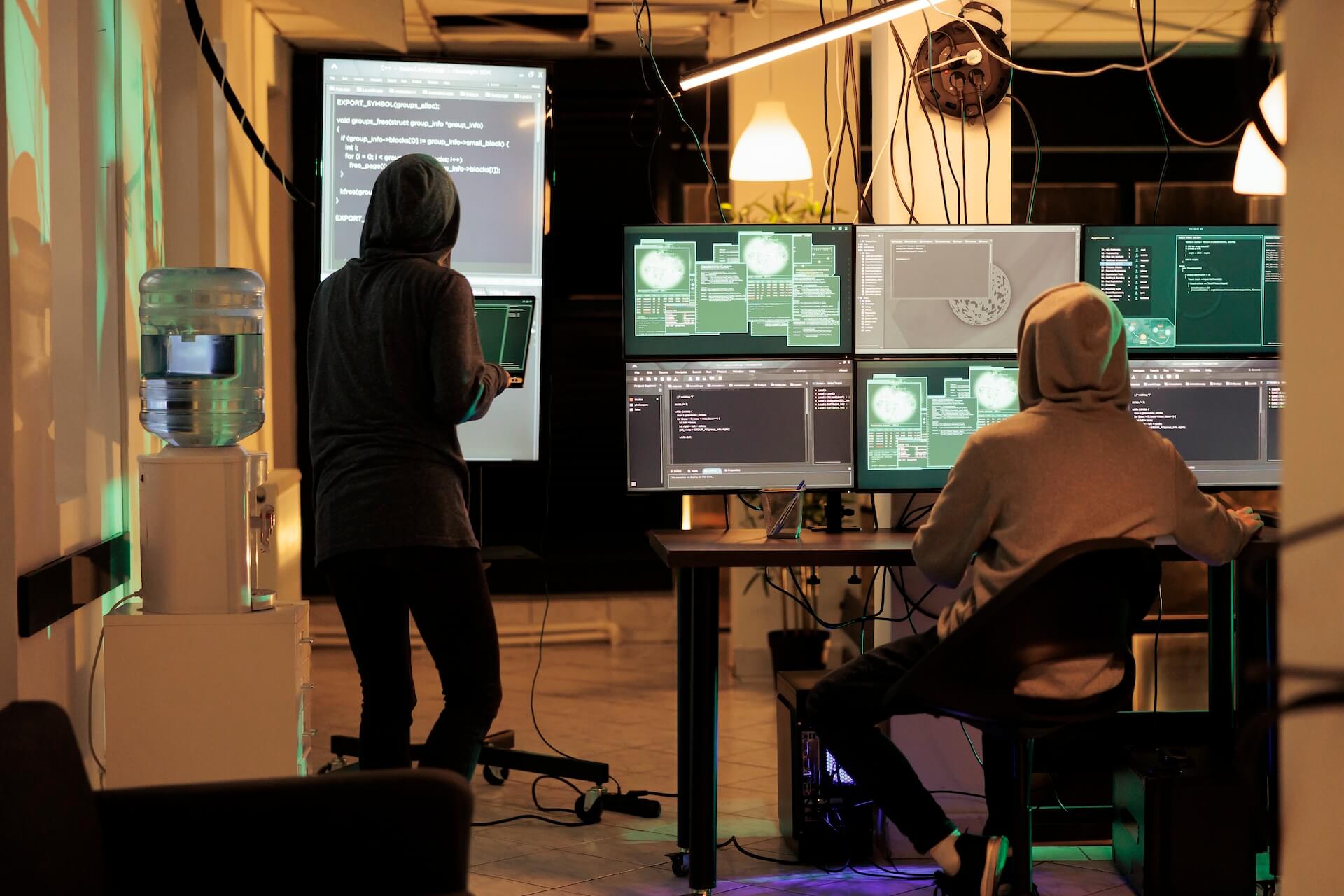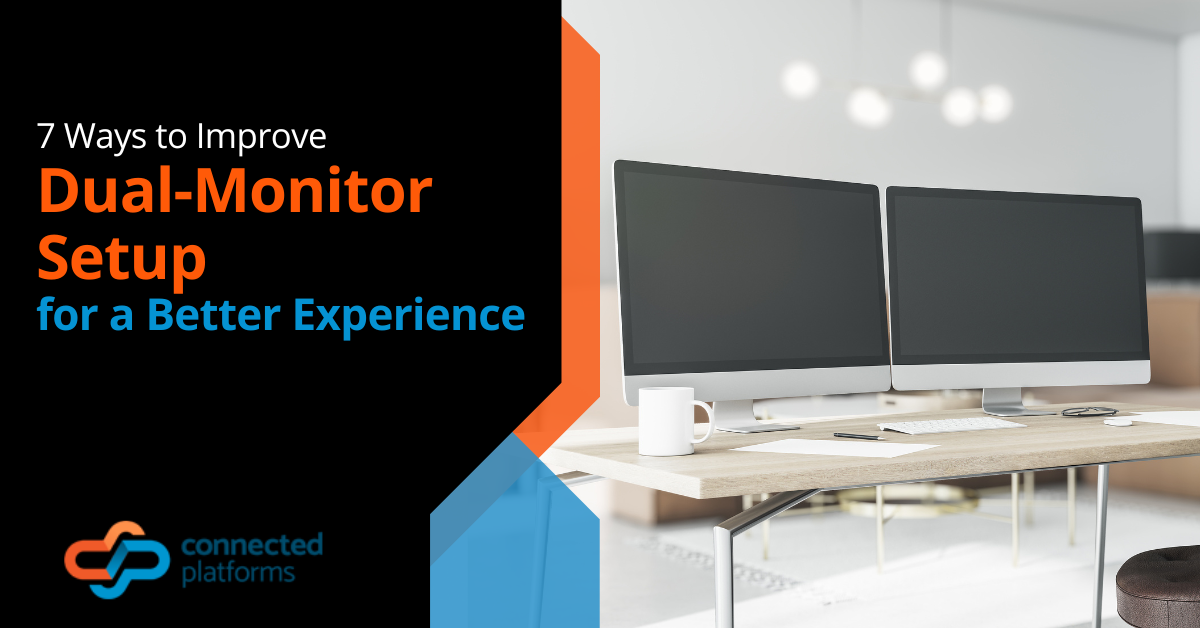[vc_row][vc_column][vc_column_text]
Since the start of the still ongoing coronavirus pandemic technology has transformed how we do business, how we engage with our clients and customers, how we provide our services and how we sell our products. The current technology trends are worth paying attention to if you are hoping to stay ahead of the curve and lead your industry ahead of your competitors.
Continue reading to learn more about what the current technology trends are, how they might evolve in the foreseeable future, and how your business may need to adapt or change to leverage all the latest technology trends in information technology to its advantage.
If you would prefer to simply get help making the best use of the current trends in information technology, you can start right now by calling Connected Platforms on (07) 3062 6932, getting in touch online or claiming your FREE IT health check to find out whether you are really leveraging all the tools available to you in improving your business and keeping it on the bleeding edge of your industry.
Business Technology Trends
Current technology trends in business are still leaning towards remote working and enabling seamless, productive collaboration between teams and team members working for different locations – remote working has enabled many businesses to survive the recent economic downturn. A shift to e-commerce is another of the ongoing business technology trends leveraged especially in the retail sector.
A Shift to Remote Working and Digital Co-Working
This is one of the most obvious latest technology trends in information technology where business is concerned, and most of us have experienced it in one way or another in the recent 12+ months. It is hard to say what the future of remote workforce will be, according to Forbes, we can at the very least expect the percentage of workers permanently working from home to double in 2021 and digital technologies we utilise in our businesses will need to be able to effectively support this “new normal” paradigm. There are plenty of platforms competing to become the go-to solutions for remote workers, from communication and conferencing software like Zoom and Microsoft Teams, to ad-hoc messaging like Slack or Workplace from Facebook all the way to managing tasks, jobs and assignments with tools like Asana, Monday.com (and a plethora of others), not forgetting about file sharing and direct collaboration on documents though Google Drive, Microsoft OneDrive or Microsoft SharePoint as well as Google Docs and Office 365 suite of productivity programs.
The Move Towards E-Commerce
E-commerce has allowed many retail operators to continue trading while their brick and mortar stores had to shut down or at least temporarily close their doors to walk-in customers. Will e-commerce completely take over retail though? Current technology trends seem to suggest this may very well be the case. At the same time, even if you are adamant about maintaining your brick and mortar store, there is no reason why you could not improve your bottom line by also offering an online shopping option. There are plenty of platforms that can help you do that. WordPress + WooCommerce are popular option for more advanced users, with Shopify generally much easier to manage for beginners. No matter what e-commerce platform you decide to go with, keeping up with the security and data privacy requirements may require additional technology for your business to be compliant with your local laws and regulations.
Whether you’re looking to enable your staff with more digital collaboration tools or want to leverage the opportunities available through e-commerce, you are likely to need help of a technology specialist to make sure all your operations are running reliably and smoothly. Call us at Connected Platforms on (07) 3062 6932, getting in touch online or claim your FREE IT health check now to get started today.
Beyond the Latest Technology Trends
Beyond the above three areas, the latest technology trends are certainly not limited to just how we do business now, but include new developments that could impact how we will be doing it in the near future. A few other aspects of how the current trends in information technology are evolving could include:
Artificial Intelligence
Artificial intelligence, although with ways to go, can already offer small business owners additional tools for automating certain business functions, especially in the online space. AI powered automated marketing can make independent decisions based on the data it collects and analyses. Additionally, AI-driven chatbots can be used to automate customer communications. The list of what artificial intelligence can do for a small business owner is expected to keep expanding moving forward. It may be worth considering whether AI can help you improve the bottom line in your business as well, before it becomes a standard, and a “must-have” rather than just a nice extra.
Blockchain
Blockchain technology goes well beyond cryptocurrency trading that initially put it in the spotlight. The part it plays in the cryptocurrency economy, however, makes it a possible choice for new ways of handling fast, secure, and lower cost payment processing. Blockchain has also been suggested as a possible supply chain management solution for e-commerce small businesses. In the future, blockchain adoption may become a necessity and it could be prudent to begin familiarising yourself with its emerging applications now, rather than later.
IoT – Internet of Things
Pocket sized devices with internet connectivity are not limited to the ubiquitous smartphones we can hardly live without these days. IoT devices can already be used to facilitate security and access control, monitoring of human traffic, inventory management and energy management. Just as with blockchain and artificial intelligence, the list of what the Internet of Things can do for a small business, is only expected to grow into the future.
5G
5G is the fifth-generation technology standard for cellular networking, providing further bandwidth (speed) improvements over the past iterations of cellular wireless networks. 5G is becoming the new standard in wireless internet connectivity – as some have begun to say, “the future is wireless” and you may need to consider preparing your business to make the move to 5G at some point in the future. 5G must not be confused with 5GHz WiFi which is a short-range, home and office networking system, whereas “5G” specifically means the fifth generation of cell phone networks.
If you have any further questions about the latest technology trends and how they may affect your business in the foreseeable future, or if you would just rather prefer to let someone else worry about managing IT in your business or organisation, have a look at our range of IT solutions and managed IT services. For small business IT support Brisbane wide, call us at Connected Platforms on (07) 3062 6932, getting in touch online or claim your FREE IT health check today.
[/vc_column_text][/vc_column][/vc_row]




